The whole world seems upside down since the COVID-19 outbreak. The Corona virus pandemic, has an impact on everyone’s life. How do runners respond to this extreme situation?
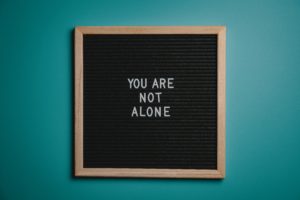
As the situation is developing rapidly, please check reliable resources regularly for the most up-to-date information. Recommended resources:
- World Health Organization – general, daily situation reports
- European Centre for Disease Prevention and Control
- Centers for Disease Control and Prevention
Worldwide, our governments are making tough decisions and they will take disease control measures that are necessary for public health. Stay updated on what’s going on in your living area. Find out about your local guidelines or mandatory self-quarantines and check out your own governmental websites on COVID-19 news.
While the global outbreak of this disease continues to spread, many running races and other large events have been postponed or canceled. You might ask yourself if outdoor running is still safe at all? Can you continue your training routines? What can we do and what should we avoid? In this article I’ll describe some do’s and don’ts for runners during COVID-19 pandemic.
How avid runners generally respond to sickness
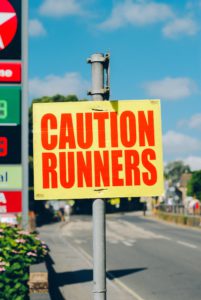
It’s known that “a normal flu”, that shows just a few minor symptoms of sickness (a bit of a cough, a bit of a running nose) usually doesn’t slow avid runners down. Most runners tend to ignore minor symptoms of sickness as long as possible and continue running.
When you suffer from a minor flu or a simple cold, it’s not so bad to have some moderate activity. You may even feel better after you’ve done an easy, low impact, workout, because:
- an increased body temperature helps fight bacterial growth
- working out releases endorphins that make you feel happy and these will boost your immune system.
- your blood circulates faster through your body which allows your white blood cells to fight the sickness harder and help you recover sooner.
It is very important to listen to your body carefully. Sometimes it is just better to take it easy. If your body is telling you that it’s tired or in pain, you simply need more rest instead of a workout. Health recovery is more important than keeping up your fitness routines. And now with the Corona virus spreading, there are extra precautions to take.
“Social distancing”, “self quarantine” and “isolation” explained

Medical experts around the world say that “social distancing” is the key to a slow down of the spread of Corona virus. That doesn’t mean we all have to go into total self-isolation all of a sudden. You might need to go in self-quarantine though. In case your government had to decide for a total lock-down situation, you have no other option than stay at home. What’s the difference between these practices?
- Social distancing is deliberately increasing the physical space between people to avoid spreading illness. Staying at least six feet away from other people lessen your chances of catching COVID-19.
- Full lock down can be implemented by Governments (like they did in China and Italy for example) in case the outbreaks become extremely severe. When this happens all non essential movement will be officially banned for the public.
- Self-quarantine should be practiced by people who (might) have been exposed to the virus and who are at-risk for coming down with COVID-19. For example people who have recently returned from traveling to an area in the world, where COVID-19 is spreading rapidly, or if they have knowingly been exposed to an infected person. Health experts recommend 14 days self quarantine as two weeks provide enough time for them to know whether they will become ill and be contagious to other people.
- Isolation is a health care term which means keeping people, that are infected with a contagious illness like COVID-19, away from those who are not infected. Isolation can take place at home or at a hospital. Special personal protective equipment will be used to care for these patients in health care settings.
Should healthy runners be afraid to get infected and better not out for a run during COVID-19 pandemic?
When it comes to disease transmission in general, it’s safer to be outdoors than staying indoors, where people are closer together. But not all viruses are equal and this COVID-19 virus does need extra awareness.
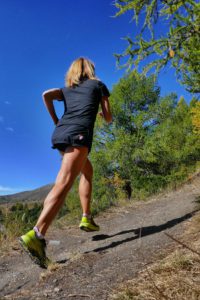
When you’re not showing any COVID-19 symptoms, OK to go outdoors for some fresh air. Just be aware of people around you. Transmission of the corona virus happens between people who are in close contact with one another, through respiratory droplets, produced by a cough or sneeze. So keep social distance.
Be aware of what you touch as well! While you’re outdoors, you might touch traffic buttons, door handles or other public objects. They may have been touched by someone who carries the virus (because they sneezed or coughed in their hands). Therefor it’s important avoid touching your face, nose or mouth after you’ve been in public areas. Carry hand sanitising gel with you, to use after you’ve touched something. And don’t forget to wash your hands, as soon as you get back.
Asymptomatic and practicing social distancing: OK for solo outdoor runs
 As long as you are asymptomatic and you have no reason to think you’ve been exposed to the virus, it’s OK to go for a solo-run outside. Always practice social distancing and avoid larger groups. It’s about decreasing the frequency of interactions. The Corona virus appears to be highly contagious and it can also be spread by people who don’t have any symptoms of sickness (yet).That’s why washing your hands frequently and not touching your face are very important.
As long as you are asymptomatic and you have no reason to think you’ve been exposed to the virus, it’s OK to go for a solo-run outside. Always practice social distancing and avoid larger groups. It’s about decreasing the frequency of interactions. The Corona virus appears to be highly contagious and it can also be spread by people who don’t have any symptoms of sickness (yet).That’s why washing your hands frequently and not touching your face are very important.
Asymptomatic and in self-quarantine: No outdoor runs!
When you don’t have any symptoms, but might have been exposed, you should stay 14 days in self quarantine. This means you should stay at home and not have any visitors and don’t get in touch with other people. So this means no outdoor runs for at least 2 weeks! To keep up your fitness you could do some home workout.
Infected with the COVID-19 virus: Stay in (medical)isolation
 Corona virus symptoms include respiratory problems, fever, dry cough, shortness of breath and breathing difficulties. In more severe cases, infection can cause pneumonia, severe acute respiratory syndrome and kidney failure. Anyone with symptoms should stay at home for at least 14 days, to avoid spreading the infection outside the home. If symptoms become more severe, don’t go outside but call your doctor first. He/she’ll decide which steps should be taken and whether you need to get tested and/or need more medical care.
Corona virus symptoms include respiratory problems, fever, dry cough, shortness of breath and breathing difficulties. In more severe cases, infection can cause pneumonia, severe acute respiratory syndrome and kidney failure. Anyone with symptoms should stay at home for at least 14 days, to avoid spreading the infection outside the home. If symptoms become more severe, don’t go outside but call your doctor first. He/she’ll decide which steps should be taken and whether you need to get tested and/or need more medical care.
When you are showing the symptoms, you may be highly at-risk of spreading the COVID-19 virus. So in that case you definitely shouldn’t go out for a run, you should stay into self-isolation until you’ve recovered.
Can I do home-workouts after being diagnosed with COVID-19?
If your symptoms are mild, don’t think you can exercise the Corona virus out of your system by sweating it all out, because the opposite will happen. The symptoms will become more severe.
Once the symptoms fade away and you feel you’re on the rebound, moderate at-home workouts may be good to keep up your fitness routine. But stay in self-isolation as long as needed, to ensure your own health and the health of the surrounding people.
Home workouts during COVID-19
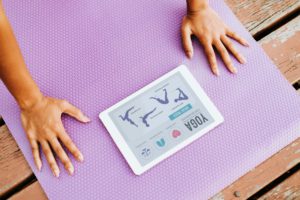 Instead of outdoor runs, you could do some home-workouts to keep up your fitness level, strength and flexibility. There are many apps and websites with a virtual coach for cardio, yoga and body weight exercises. When you have a home-treadmill you could even keep up with your running.
Instead of outdoor runs, you could do some home-workouts to keep up your fitness level, strength and flexibility. There are many apps and websites with a virtual coach for cardio, yoga and body weight exercises. When you have a home-treadmill you could even keep up with your running.
Having some exercise equipment can make it easier to do your workouts at home. Here’s an overview of some useful equipment for runners:
- Treadmill: being a runner, a treadmill at home can come very practical. Of course, you need to have enough room in your house or apartment, but they are very useful to keep up with your running routines. Especially during self-quarantines when you are not allowed to go outdoors. When you are on a budget, have a look at online marketplaces or in the local newspapers for more affordable second hands.
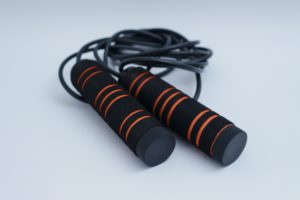
- Jump rope: this is an excellent solution for some cardio exercises. And also very useful for your warm up. It will help you get your heart rate up quickly and it doesn’t take much room.
- Exercise/yoga mat: this is useful for several floor exercises, yoga and stretching. Before purchasing one, consider how you will use it: A yoga mat is usually very thin (for firmer grip and stability during yoga sequences and poses) ,whilst Pilates or exercise mats are usually foamier and a bit thicker, which makes them more comfortable for floor exercises and stretching. If your workout includes jumping as well, then a thicker exercise mat may reduce the impact on your joints. An exercise mat can also provide cushioning if you are using weights.
- Step: this is a 4-inch to 12-inch raised platform. You step up, around, and down from the platform in different patterns and paces. This cardio training will boost your heart rate and breathing, and strengthen your muscles. A step is also useful as a supporting platform for abs training or runners stability exercises.
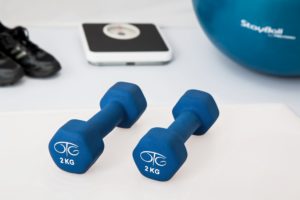
- Dumbbells: can add more intensity to your strengthening or resistance workouts. Buy 2-3 sets of varying weights so that you can use them for several exercises. Choose those weights that are just a bit on the heavy side (but not too heavy),just enough to challenge yourself and increase your strength.
- Foam roller: foam rolling reduces muscle tension and it stimulates an increased blood flow. This means a higher supply of oxygen add nutrients to your muscles which promotes faster recovery from exercise.
With this fitness equipment you can do a great variety of home-exercises. Don’t buy all at once, but only purchase the equipment pieces that you think you will use most. If home-based exercises work well for you, then you might consider expanding your equipment to create a more extended home gym.
Don’t worry if you don’t have a lot of space at home! To starts working out at home you literally need is just enough space to fit an exercise mat. Afterwards you can roll it up again and store in under your bed or in a corner.
How runners can boost their immune system
As long as you are not showing any symptoms and you have no reason to think you have been exposed to the virus, you can do several things to strengthen your personal health and to boost your immune system:
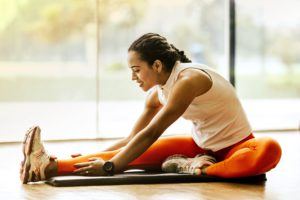
- (Home-) exercise regularly: Exercise promotes good circulation and can be one of the best things to do to boost immunity. It improves cardiovascular health, lowers blood pressure, helps control body weight, and protects against a variety of diseases. But we have to be careful because too much exercise is stressful on the body and can be tough on our immune system. So keep the impact of your exercise moderate (and therefor the stress on your body low) land if you’re tired, then take a rest and recover! Finds the right apps or websites that offer exercises that you like to do. This makes it easier to actually do them regularly.

- Minimise emotional stress: there is a closely linked relationship between the mind and the body. A wide variety of illnesses, like an upset stomach, allergic reactions and even heart disease, are linked to the effects of emotional stress. Find a way to relieve from stress situations. Meditation or yoga could help, or talking with someone. Physical exercises also helps reduce emotional stress.
- Get adequate sleep: getting not enough sleep increases stress and decreases our immunity. Try to get 7-8 hours of sleep per night. Plan your bed times and switch off all of your devices an hour before you head to bed.
- Maintain a healthy weight: Body mass index (BMI) is one of the most popular ways to calculate an ideal weight range. It is a measure of body fat based on your height and weight. Between 19 and 25 means you’re in the “normal” weight range for your height. If your result is under 19, you’re considered underweight. Higher than 25 means you’re considered overweight. Consider changing your diet if your BMI isn’t in the healthy range. When you need help, please consult a professional dietitian, a nutritionist or a lifestyle coach. There are many professionals that can help online as well!
- Reduce inflammation: When tissues are damaged, the inflammatory response is initiated, and the immune system becomes active. Try to avoid injuries, other inflammations or skin irritations to keep your immune system at full strength in case of COVID-19 infection.

- Don’t smoke: Smoking harms the immune system and can make the body less successful at fighting diseases.
- Drink alcohol only in moderation: Alcohol disrupts the gut barrier, allowing more bacteria that cause sickness and viruses to pass into the blood. Excessive drinking reduces the strength of your immune system.
- Breathing-techniques: deep breathing and other breathing techniques not only reduce mental and physical stress, but t when performed correctly and regularly they can be an enormous immune system booster. There are many apps and websites to be found to teach you breathing techniques. Just try to see.
- Immune system boosting nutrition: eat more citrus fruits, garlic, broccoli, and spinach. If your immune system is already weak, it can be helpful to use supplements that may have become depleted like Vitamin C, Vitamin B, Vitamin D, and Zinc.
Powerful food items that will boost your immune system
Feeding your body with the right foods may boost your immune system.Plan your groceries and put a few of the following items on your shopping list:
Fruits:

- Citrus fruits (oranges, lemons, limes, grapefruit): rich in vitamin C which stimulates the production of white blood cells. These white blood cells are most important to fighting infections and diseases.
- Kiwi: rich in many essential nutrients, such as folate, potassium, vitamins K and C.
- Papaya: high concentration of vitamin C and a digestive enzyme: papain, which has anti-inflammatory effects. Papaya contains great amounts of potassium, B-vitamins and folate, for overall health benefits.
Vegetables:
- Red peppers bells / Capsicum/ Paprika: contain twice as much vitamin C as citrus and are rich source of beta carotene, for healthy eyes and skin.
- Broccoli: very rich in vitamins A, C, and E,many other antioxidants and fibers. Best is to cook it as short as possible (or eat it raw).
- Spinach: rich in vitamin C, antioxidants and beta carotene, which increases the infection-fighting ability of our immune system.
Herbs and spices:
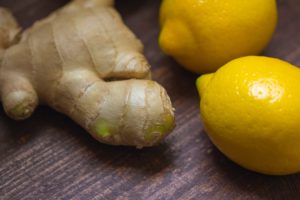
- Garlic: is very helpful to fight infections and it helps lower the blood pressure.
- Ginger: helps decrease inflammation, nausea and chronic pain and it possesses cholesterol-lowering properties.
- Turmeric: has anti inflammatory properties and decreases (after workout) muscle damage repair.
- Green tea: is rich in flavonoids and EGCG, which are both antioxidants to enhance immune function.
Dairy:
- Yogurt: choose plain, unsweetened (Greek) yogurt, as it contains live and active cultures and it is rich in vitamin D. It will stimulate your immune system to help fight infections and diseases.
Nuts & Seeds:
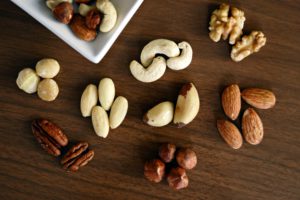
- Almonds: Nuts, such as almonds, are rich in vitamin E and healthy fats, which is key to our immune system. Two hands full of whole almonds provide almost 100 percent of the recommended daily amount of vitamin E.
- Sunflower seeds: very high in vitamin E, a powerful antioxidant for regulating and maintaining immune system function.
Meat & Fish:
- Poultry: high in vitamin B-6, which is important for many chemical reactions in the body and very important for production of new red blood cells. Broth made by boiling chicken bones contains several nutrients that are helpful for a healthy gut and overall immunity.
- Shellfish (crab, mussels, lobster, clams): are rich in zinc, which regulates immune cells to function properly.
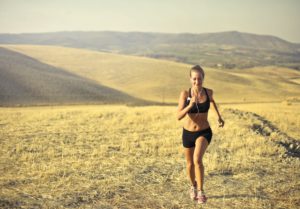
I hope that this article has taken away some fear and uncertainty about COVID-19 and hopefully you’ll find ways to keep up your fitness and boost your immune system. Stay healthy! One day we will all run again! When you have any questions or if you’d like share additional tips, please send me an email at an*******@mo*********.com or leave your comment below.
#CoronaVirus #COVID-19 #Runners #BoostYourImmuneSystem

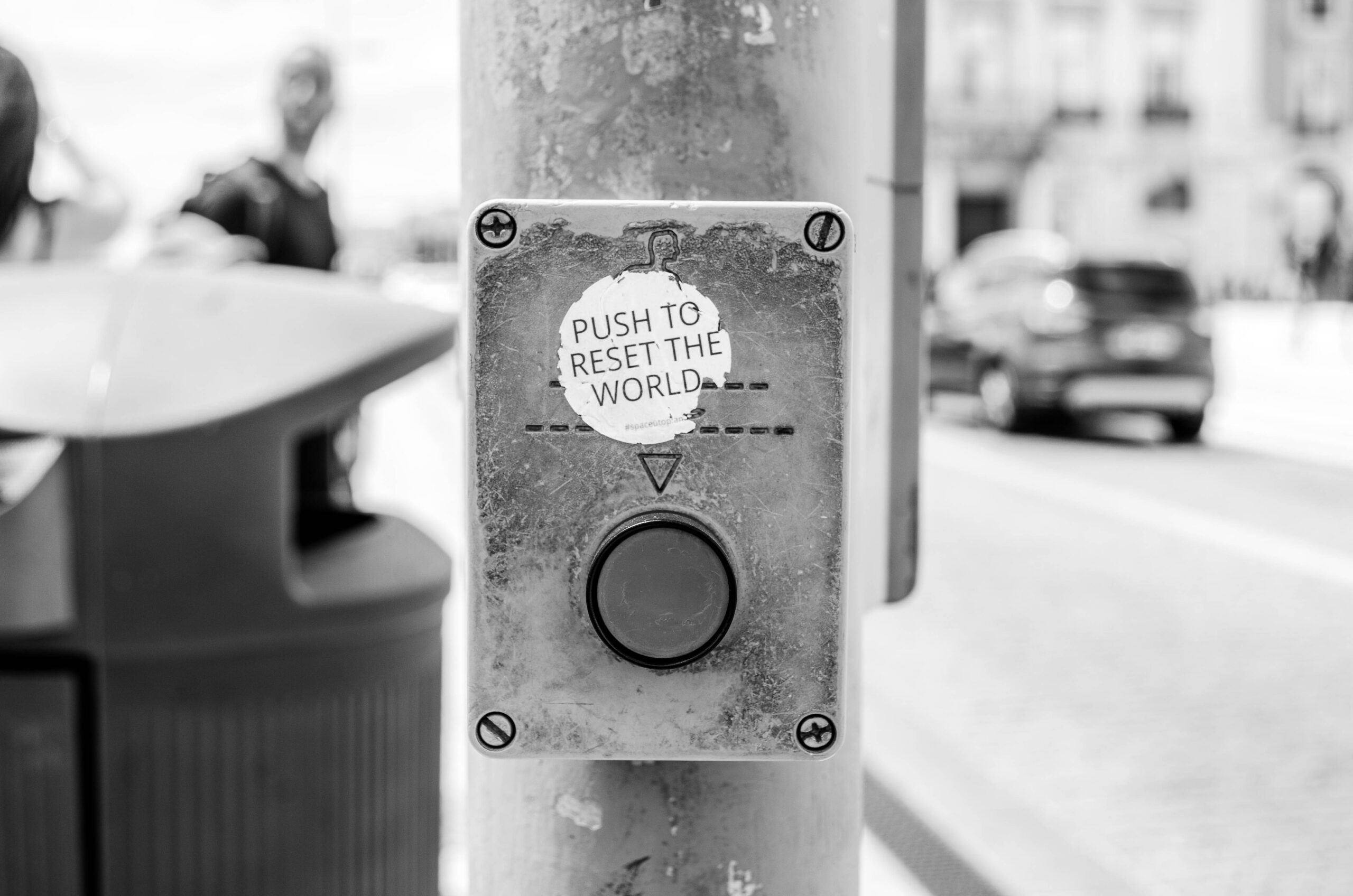



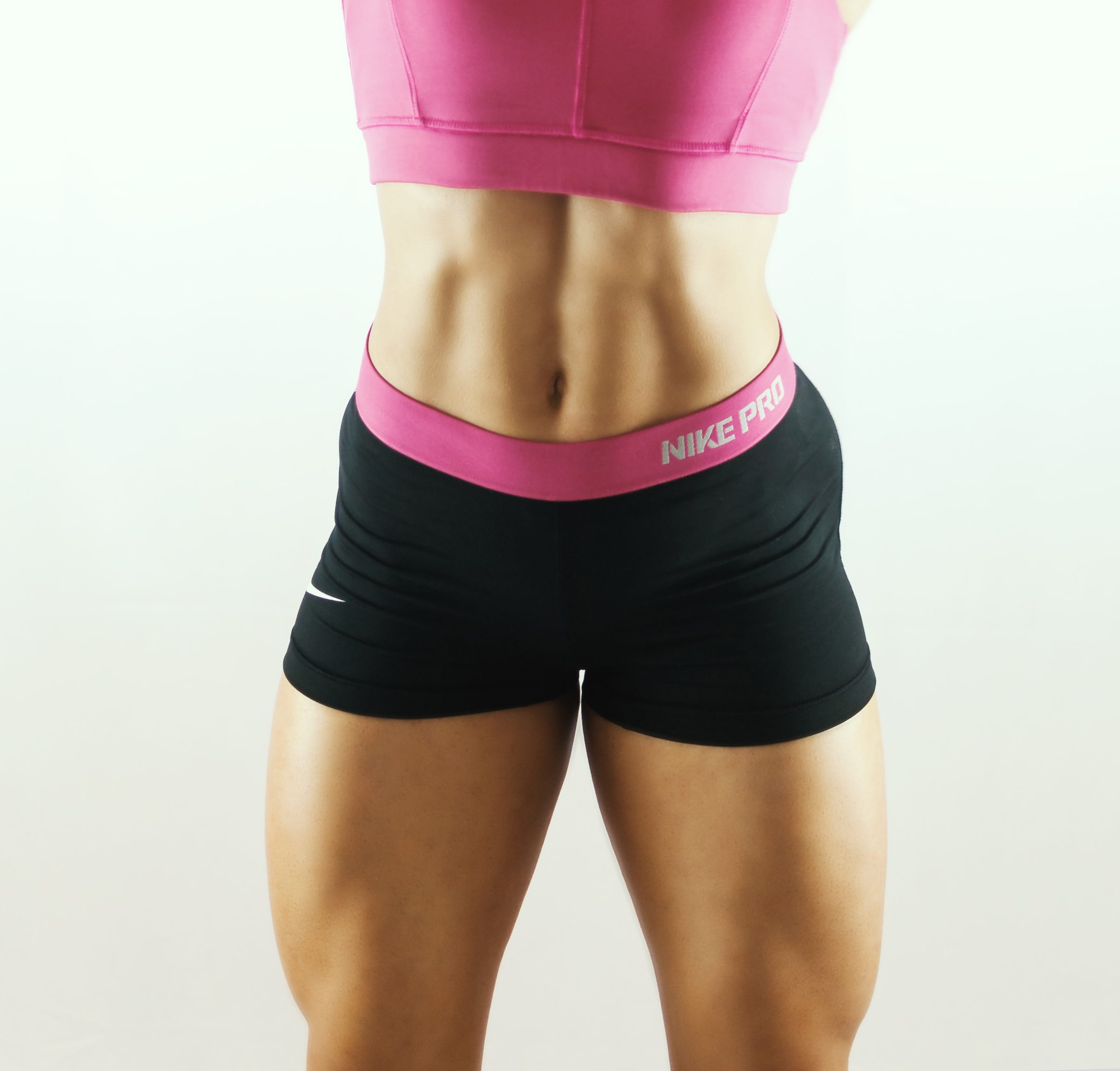
This is a great post for the uncertain times we are in. I’m sure there are many people wondering how to keep up with their fitness routines, if most of them were done outdoors or at the gym. These are great tips to follow for runners who may or may not have been exposed to the virus. Thanks for all the tips on keeping the immune system strong as well.
Hi Carla, thank you for your reply. Stay healthy!
Hi Angelique,
I’m glad I ran across your article (no pun intended). I took a walk today at lunch and it felt very strange. I walked a mile in our suburban neighborhood and I was the ONLY person in site a noontime. I felt like the last person on earth. It seems all of the walkers and runners in the neighborhood were inside afraid to come out.
Your article is very balanced when it talks about exercise while still social distancing. It really is that simple, if your body says no, then sit down and give your body the rest it needs. But if you are not showing symptoms and are not in a position where you will put others or yourself at risk of catching COVID19, or anything else, then go ahead and workout with moderation.
Hi, thanks for your comment Rob.Of course I am aware that in some countries /locations people are in a total-lock down situation. In that case the outdoor solo-run is not applicable. But for those the at home exercises might be a good solution. Good luck and stay healthy!
Thank you,
We all appreciate you sharing such important information with running and exercise concerning the covid19, so is this really considered the flu or a disease?
I have not changed my routine despite this outbreak, I just feel I am not going to allow this to disrupt my daily routine. We all need to get out of the house or depression can set in, and worrying about getting this flu or disease will only make us more anxious and weaken our immune systems
Jeff
Hi Jeff, Thanks for your comment. I personally don’t underestimate the thread of this Corona virus. I don’t think it is “just another flu or disease” It’s a very contagious and for more vulnerable people, even deadly virus. We need to slow down the spread in order to have proper treatment in place for those who’ll fall ill. It is very important to follow the instructions that every government will send out to the public. I wouldn’t ignore social restrictions. We don’t know how long we will have to live in quarantine or social distance, but we’ll have to just do it. Meanwhile it is important to find a way to keep up your physical exercise and try to boost your immune system. Just to have your body better prepared for any sort of illness or infection. Stay healthy!
This pandemic has has turned my life upside down right now. I work in the fitness field and a lot of gyms have shut down.
This is an excellent post I’m going to share that has a lot of tips for people to follow.
Working out at home or outdoor runs is an excellent thing for people to do right now. I think you’ve highlighted all the best points.
Exercise in general is great for the immune system and also as a mood booster. There is a lot of added stress in people’s lives right now and a nice outdoor run would do them wonders.
Thank you for your comment and for sharing my article in your network. I hope the situation will be under control soon. we cannot control this virus yet, but we can work on our immune system and fitness to try to become stronger to fight back. Stay healthy! wishing you luck in this difficult situation.
I admire you devoting your past few articles to the COVID19 virus, and you have provided outstanding information for us to protect ourselves as much as possible from this terrible situation. It is clear one day man is going to end our race with our crazy experiments, and the earth will be returned to nature and the wildlife once again
Jeff
What about all the people living with autoimmune diseases, are they high-risk for the COVID19?
Hi Jeff, Thank you for your comment. Let’s hope for the best and try to strengthen our bodies to protect ourselves as much as possible. According to the reliable resources that I mentioned in the article, older adults and people of any age who have serious underlying medical conditions (such as: heart diseases, diabetes and lung diseases) may be at higher risk for more serious complications from COVID-19. I am not sure what’s the effect of COVID-19 to people with auto immune diseases, I’d recommend anyone with medical issues to check their personal situation with their doctor or medical specialist. Hope you are ok?
Dear Angelique,
Thanks a lot for your inspiration, advices and facts. Because of your motivation I run today for 2,5 km. Feels good to start again.
Keep up the good spirit!
A healthy virtual hug,
Valerie
Thanks for the compliment Valerie. I’m glad you started again! Keep it up! And let me know hoe you go.